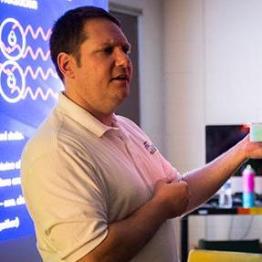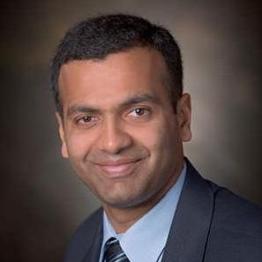
Expertise for ASCENT
Coordinating Institution: Ohio University
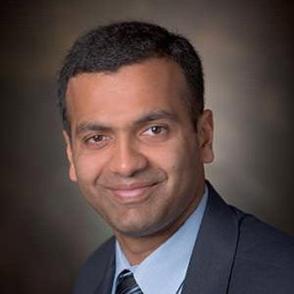
Avinash Karanth, professor and chair of the School of Electrical Engineering and Computer Science in the Russ College of Engineering and Technology, is a co-PI on ASCENT and will help develop the semiconductor education curriculum. His research and educational interests are in computer architecture, hardware accelerators, machine learning and trustworthy computing. His laboratory has access to circuit and system level simulation tools from Cadence and Synopsys for modeling, simulating and validating the hardware circuits and architectures that will be used in the courses developed for the ASCENT Ecosystem.
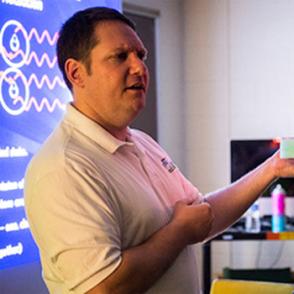
Eric Stinaff, professor and chair of the Physics and Astronomy Department in the College of Arts and Sciences, is a coPI on ASCENT and will help develop the semiconductor education curriculum. He also directs the Nanoscale and Quantum Phenomena Institute. His research utilizes many tools relevant to semiconductor fabrication including chemical vapor deposition, photolithography, sputtering, contacting and device characterization. He will work with Gang Chen to incorporate existing physics and astonomy courses on materials characterization techniques (SEM, XRD, etc.) into the ASCENT Ecosystem.
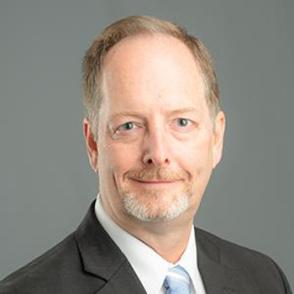
Todd Myers Ph.D., M.B.A., C.S.M.S, director of professional development in the Russ College of Engineering and Technology, will work with regional partners in developing the ASCENT education ecosystem by coordinating and facilitating the implementation of curriculum and the development of new certificates and programs of study. His research and educational interests include engineering technology, professional online education, curriculum development, instructional design, and academic partnerships.
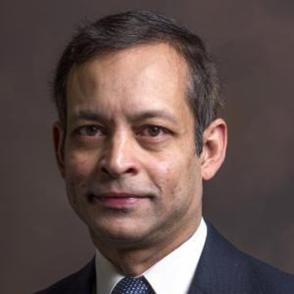
Faiz Rahman, associate professor in the School of Electrical Engineering and Computer Science in the Russ College of Engineering and Technology and member of the Nanoscale and Quantum Phenomena Institute, will work on curriculum and laboratory demonstration development for the semiconductor technology certificate in the ASCENT program. His research is on semiconductor materials and devices with particular emphasis on modern silicon process technologies including advanced lithography, chemical mechanical planarization and silicon-gallium nitride co-integration. He has also previously worked as a senior technology development engineer at Cypress Semiconductor Corporation.
Partner Institutions

Jeremy Vittek, provost, works with the ASCENT team to ensure there is proper institutional support and curricular alignment to provide expanded opportunities for our students.
Keith Kaczor, associate professor and program developer of the HVACR Program at Belmont College, works to bring the HVACR program online and establish certificates in IAQ (indoor air quality) and BAS (building automation systems). These newly developed certificates work together to develop clean room technologies in training the new workforce for ASCENT program. Kaczor has developed local, state and national partnerships, an HVACR advisory board, created an internship program and a capstone program.
Edward Mowrer, energy institute manager, works with the ASCENT team to support curriculum development around building automation and clean room science. As part of the Energy Institute, he has developed courses around energy, building science and automation. Mowrer has over 40 years of experience in energy and has worked with curriculum, program development and implementation. He is past chair of engineering technology programs for Belmont College and has worked with industry to align programs with their needs.
Nathan Brinker, contractor for Belmont College through the ARC Power Grant, helps develop an online and virtual learning space where students can become familiar with HVACR diagnostic, installation and maintenance procedures before going into the field or the lab. Brinker works with the ASCENT team to provide support in developing a learning curriculum around HVACR. Brinker has been in the residential building and remodeling field for 16 years and has a completed many projects in the local communities. Brinker will provide direct support in clean room science technology.

Eastland-Fairfield Career & Technical Schools
Cherrelle Turner is coordinator of business partnerships and career readiness at Eastland-Fairfield Career and Technical Schools. She facilitated the first ASCENT scholarship process for the high school and adult workforce programming initiatives at Eastland-Fairfield Career & Technical Schools, where she is the primary ASCENT coordinator for the district. Turner is a proud Bobcat and graduate of the E.W. Scripps School of Journalism at Ohio University, where she earned a Bachelor of Science in public relations. She went on to earn a master’s degree in education from George Mason University and a master’s degree in administration and leadership from Teachers College at Columbia University. With professional experience spanning from Washington, D.C., and Japan to New Orleans and Cleveland, Turner gladly wields her leadership to build advancement opportunities for students and communities of the Buckeye State. Eastland-Fairfield Career & Technical Schools is the career and technical education planning district for 16 public school districts across central and south central Ohio. There, Turner prioritizes engagements that enhance both career opportunities for students and the workforce development scenario for local industries. Through collaborative initiatives such as ASCENT, Turner actively forges bridges of possibility and accessibility for businesses and the workforce alike.
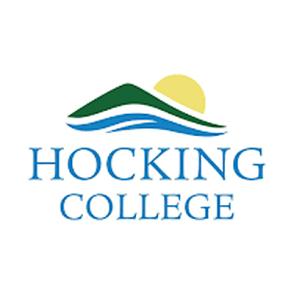
Adam Fowler, dean of workforce development and community engagement for Hocking College, coordinates course offerings from Hocking College that students will complete before moving into an associate degree offered by Ohio University – Lancaster. Hocking College and Ohio University – Lancaster have enjoyed a three-year partnership at the Fairfield County Workforce whereby the two institutions share engineering technology equipment. Specifically, Hocking College created pathways for HVAC and electrical technicians for the ASCENT program.
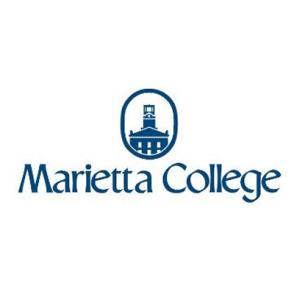
Ben W. Ebenhack, chair of the combined Department of Petroleum Engineering, Geology, and Environmental Engineering, works with faculty at Marietta College to propose and launch an industrial engineering major and to ensure that it simultaneously complements the industrial chemistry major being developed at Marietta College, enables transfers from the partner community colleges, and addresses the needs of Intel for professional hires. He is an experienced engineering leader in industry, non-profit work and the academy.
Dennis E. Kuhl, professor in the Department of Physics, will work with faculty at Marietta College to update the existing applied physics major. This will complement the industrial chemistry and industrial engineering majors being developed at Marietta College, encourage transfers from the partner community colleges, and address the needs of Intel for professional hires. His surface science research into adsorbate-induced effects on thin metal films utilizes tools relevant to the semiconductor industry including ultrahigh vacuum techniques, Ar ion sputtering, Auger Electron Spectroscopy and sensitive resistivity measurements.
James R. Jeitler, associate professor in the Department of Chemistry, will work with faculty at Marietta College to develop the industrial/engineering chemistry major. This will complement the updated applied physics major and the industrial engineering major being developed at Marietta College. He will also work to formalize transfers from the partner community colleges and address the needs of Intel for professional hires. His material science research into magnetic materials includes low temperature measurement of magnetic properties. He will develop a modern materials class that includes semiconductor properties.
Juan Carlos Ramirez-Dorronsora, assistant professor in the Department of Environmental Engineering, will work with faculty at Marietta College to design a research internship in environmental engineering. His eleven years of professional experience in the industrial and environmental engineering field paired with twelve years of teaching college-level engineering and environmental courses will help to ensure that students receive experience that are relevant to the needs of Intel for professional hires.

Mid-East Career and Technology Centers
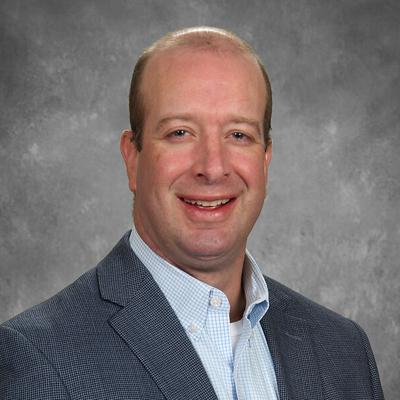
Matt Sheridan, superintendent at Mid-East CTC, serves as a point of contact and works with partners to integrate curricula across the region.
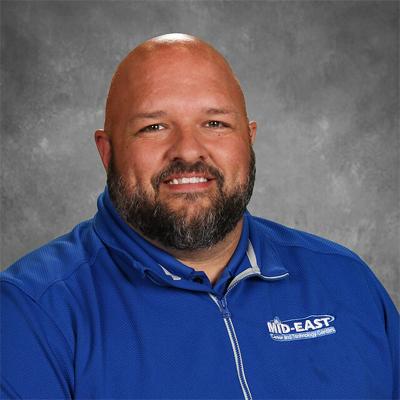
Jeremy Beardmore, assistant superintendent at Mid-East CTC, works with partners to integrate curricula across the region. One of his areas of expertise includes forming CTAG, institution to institution, and articulation agreements with higher education partners to help Mid-East students obtain college credits.
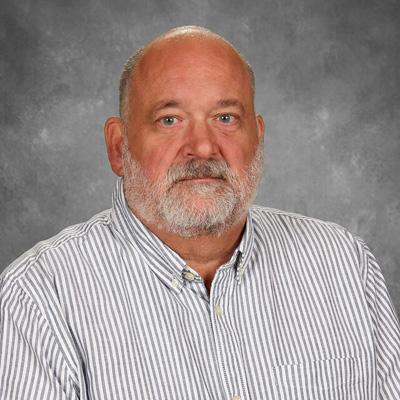
Matt Dudas, computer networking/electrical technologies (CNET) instructor at Mid-East, also works with partners to integrate curricula across the region and in his own classes. He instructs approximately 20 seniors half the day and 20 juniors the other half of the day. His two-year program currently offers three different three-hour CTAG courses, and articulation agreements with both Hocking College and Zane State totaling another 14 credit hours.

Adam Miller, associate professor and chair of the Engineering Technologies Department, works with faculty from Shawnee State University to guide the enhancement of the curriculum to in electromechanical engineering and computer engineering technology to fit the needs of Intel and align with the semiconductor education curriculum at Ohio University.
A new faculty member with graduate work in electronics and mechanical disciplines is currently being hired and will be included in this initiative. His teaching experience includes plastics manufacturing, statistical process and quality control and additive manufacturing.

Emily Boyer, director of adult education at Tri-County Career Center, oversees the programming within adult education as well as the faculty teaching within the programs. Currently, Tri-County Career Center’s adult programming includes cosmetology, medical assisting technology, nursing assistant, phlebotomy, power line technician training, welding, and fiber optic technician training. Boyer is enthusiastic about the new Cyber Security program coming to the adult offerings at Tri-County Career Center. Additionally, TCCC offers short-term classes in computer training, CPR and first aid, and ServSafe, a nationally recognized certification that allows individuals to get a job in the food service field.

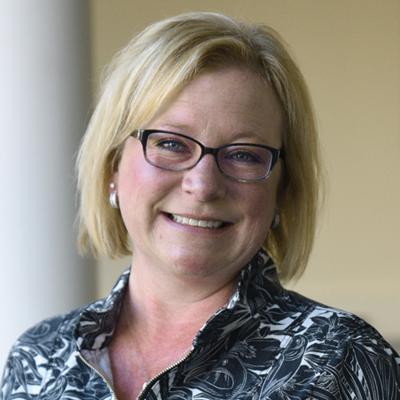
Marcie Moore, dean of business, engineering and IT at Zane State College and coPI of this project, coordinates all activities with the ASCENT team and faculty of Zane State College. She has served in various roles in higher education for 25 years. Her doctoral dissertation focuses on recruitment and retention of adult learners.
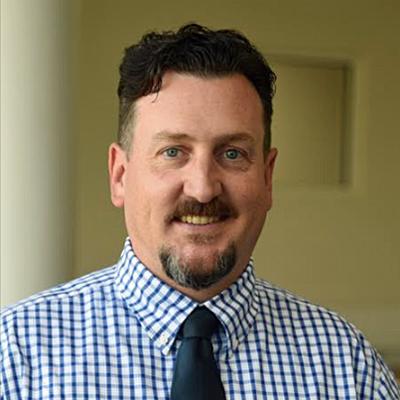
Craig Whitson, professor and department chair for engineering programs, works with the ASCENT team to coordinate the administration of semiconductor-related courses. He has extensive background working with high school juniors and seniors in a unique program called Pathways to Engineering.
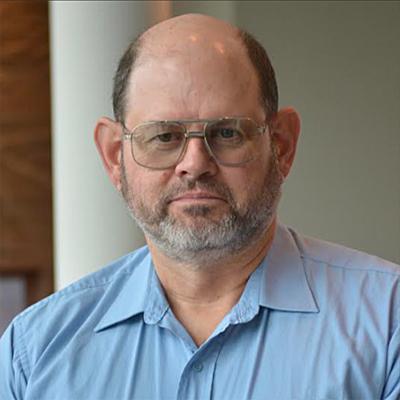
Anthony Kerr, associate professor in the Electrical Electronics Engineering Technology Program, is the advisor for both associate degree students in EEET and the bachelor’s degree students in BSET.
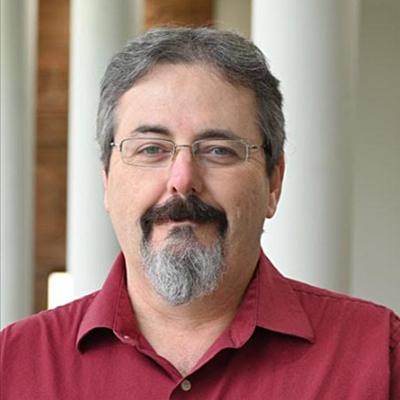
Chip Clark is an instructor of the mechanical engineering program. In addition, he teaches numerous workforce development courses in the mechanical and industrial engineering fields as well the semiconductor courses. Clark has over 30 years of industry experience and is the former director of the college’s makerspace, the IDEA Lab.

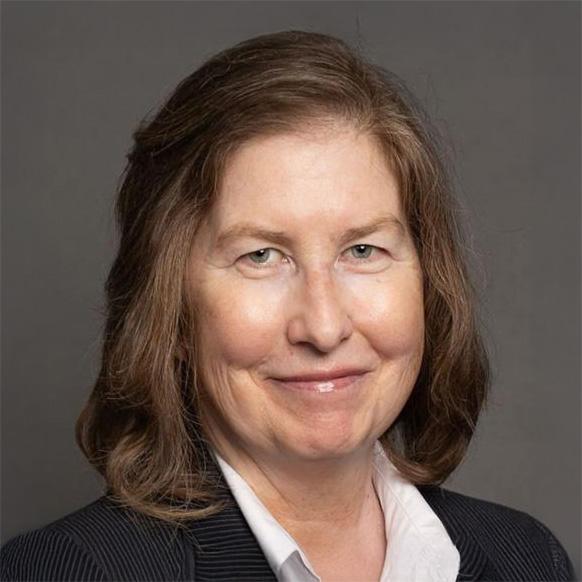
Roberta Milliken, dean of campus and community relations at Ohio University - Chillicothe, works with faculty to develop and coordinate curricula that generally support ASCENT. As the campus liaison to the local community, she builds foundational assistance for the ASCENT, coordinates the participation and support of partner institutions, and identifies potential ways to ready the campus to provide adequate delivery of newly developed semiconductor-focused certificates.

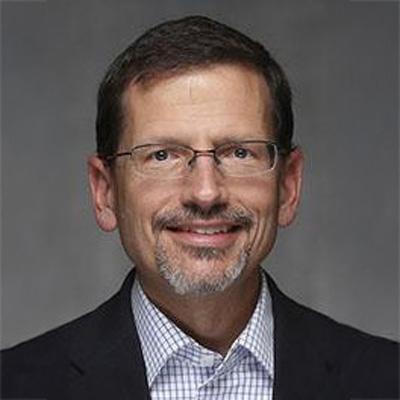
David Rohall, dean of campus and community relations at Ohio University - Eastern, coordinates with ASCENT team members from the main campus as well as the regional partners to provide adequate delivery and offerings of the semiconductor-focused certificates and courses. He completed his doctorate in Sociology at University of Maryland, College Park in 2000. Prior to coming to Ohio, he served as a department head at Missouri State University, where he managed the development and operation of multiple programs and certificates.

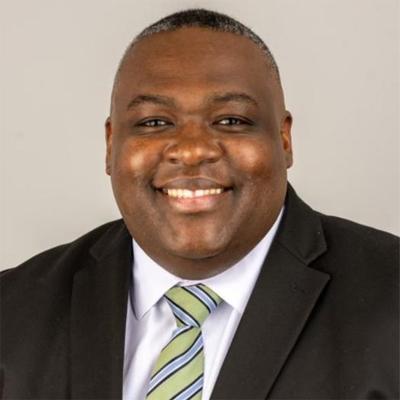
Lewatis McNeal, vice provost for regional higher education and Partnerships and interim dean of Ohio University – Lancaster, oversees the development of an associate degree program in semiconductor process and manufacturing in collaboration with participating career centers. He manages the relationship between Ohio University’s regional campuses and the partnering career centers. Previously, McNeal served as the associate dean for administration and diversity and teaching associate professor of public health in the College of Education and Health Professions at the University of Arkansas. He brings a wealth of experience in higher education administration, having held significant roles at various institutions. These include serving as associate dean and clinical associate professor of public health and acting dean of the College of Education Human Services at Northern Kentucky University, assistant dean for administration, inclusive excellence and special projects at Northern Kentucky University, and associate dean of student affairs at Owensboro Community and Technical College.
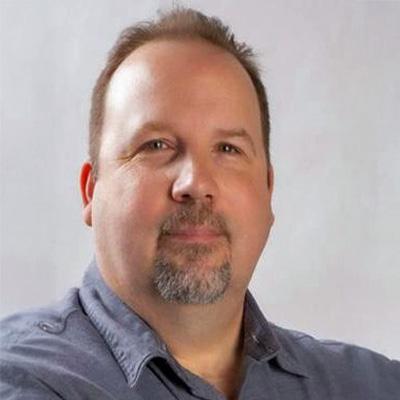
Trevor Warfield, assistant professor of Engineering Technology at Ohio University – Lancaster, instructs students enrolled in the new associate degree in semiconductor process and manufacturing. Warfield also is responsible for identifying the proper equipment for the new degree. Warfield is experienced in advanced manufacturing including expertise in manufacturing materials and processes, electronics, hydraulics, automation and robotics.
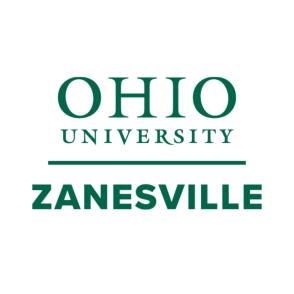
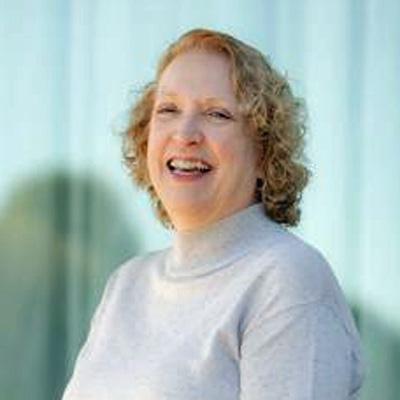
Hannah Nissen, dean of Ohio University - Zanesville, will work with the ASCENT Ecosystem team in coordinating baccalaureate degree and certificate offerings on the Zanesville campus. Ohio University - Zanesville shares a campus with Zane State College, and students interested in building on AAS degree offerings toward more advanced degrees can easily transfer to OHIO Zanesville for that purpose. This campus will also serve as a site for delivery of semiconductor focused certificates to be developed by the ASCENT team.
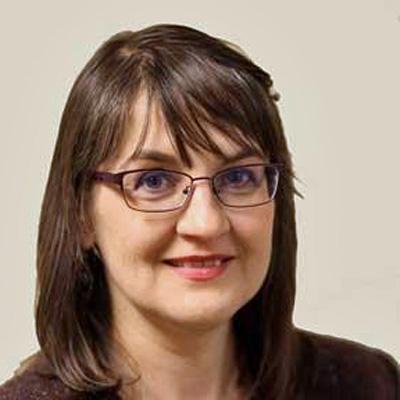
Gabriela Popa, professor in the Physics and Astronomy Department at Ohio University - Zanesville, will provide leadership on the Zanesville campus for offerings related to baccalaureate degrees and semi-conductor focused certificates that will be developed. Also, she works with faculty in the nuclear theory group participating in nuclear theory computations. Popa involves undergraduate students in computational physics projects
Coordinating Institution: Ohio University
- Avinash Karanth, professor and chair of the School of Electrical Engineering and Computer Science in the Russ College of Engineering and Technology, is a coPI on ASCENT and will help develop the semiconductor education curriculum. His research and educational interests are in computer architecture, hardware accelerators, machine learning and trustworthy computing. His laboratory has access to circuit and system level simulation tools from Cadence and Synopsys for modeling, simulating and validating the hardware circuits and architectures that will be used in the courses developed for the ASCENT Ecosystem.
- Eric Stinaff, professor and chair of the Physics and Astronomy Department in the College of Arts and Sciences, is a coPI on ASCENT and will help develop the semiconductor education curriculum. He also directs the Nanoscale and Quantum Phenomena Institute. His research utilizes many tools relevant to semiconductor fabrication including chemical vapor deposition, photolithography, sputtering, contacting and device characterization. He will work with Gang Chen to incorporate existing physics and astonomy courses on materials characterization techniques (SEM, XRD, etc.) into the ASCENT Ecosystem.
- Todd Myers Ph.D., M.B.A., C.S.M.S, director of professional development in the Russ College of Engineering and Technology, will work with regional partners in developing the ASCENT education ecosystem by coordinating and facilitating the implementation of curriculum and the development of new certificates and programs of study. His research and educational interests include engineering technology, professional online education, curriculum development, instructional design, and academic partnerships.
- Faiz Rahman, associate professor in the School of Electrical Engineering and Computer Science in the Russ College of Engineering and Technology and member of the Nanoscale and Quantum Phenomena Institute, will work on curriculum and laboratory demonstration development for the semiconductor technology certificate in the ASCENT program. His research is on semiconductor materials and devices with particular emphasis on modern silicon process technologies including advanced lithography, chemical mechanical planarization and silicon-gallium nitride co-integration. He has also previously worked as a senior technology development engineer at Cypress Semiconductor Corporation.
- Wojciech Jadwisienczak, professor and graduate chair of the School of Electrical Engineering and Computer Science in the Russ College of Engineering and Technology and member of the Nanoscale and Quantum Phenomena Institute, will work with the ASCENT team to create the semiconductor education curriculum and practical training. His primary research focuses on fundamental properties and applications of semiconductors for optoelectronics, spintronics and photovoltaics. In his research, he utilizes deposition tools (PVD, CVD, sputtering, e-beam evaporation), device fabrication processes (photolithography, metal deposition, wire bonding), and characterization (electrical, optical, magnetic). He will collaborate with the Electrical Engineering and Computer Science faculty to implement the electrical engineering curriculum with semiconductor technology-relevant lab demonstrations and hands-on experience training.
- Savas Kaya, professor in the School of Electrical Engineering and Computer Science in the Russ College of Engineering and Technology and member of the Nanoscale and Quantum Phenomena Institute, will maintain the existing courses and research focus on micro and nano fabrication and semiconductor devices, will continue to serve as an active participant to ASCENT's curricular and training activities. In particular, he will spearhead the development of existing and new online courses as well as the simulation tools available at the NSF's NanoHub and Virtual Fab Lab (VFabLAb). His broad interests cover mixed-signal circuits, nanoelectronic devices and sensors, nanofabrication, analytical modeling, simulation and characterization, advanced microscopy and printed/flexible electronics. He is also the PI of nanOstUdio platform that can be used for student training
- Muhammad Ali, professor and graduate chair in the Department of Mechanical Engineering in the Russ College of Engineering and Technology, will provide assistance in developing the semiconductor manufacturing certificate. He will work with Rahman, in developing content related to statistical process control for semiconductor manufacturing, chip assembly and packaging. Further, as the Director for Center for Advanced Materials and Processing, he will support the proposed ASCENT ecosystem in hands-on project-based learning by providing access to prospective students, researcher, trainers and faculty to a host of equipment. Ali has several years of experience in design for manufacturing, design for assembly, material development and characterization for applications in dynamic loading, packaging and thermal environments. He has extensive experience in industry-focused engineering curriculum development, implementation, assessment and continuous improvement.
- Sumit Sharma, associate professor in the Department of Chemical and Biomolecular Engineering in the Russ College of Engineering and Technology and member of the Nanoscale and Quantum Phenomena Institute, will work with faculty to develop chemical and material science curriculum related to semiconductor manufacturing and data analysis. Sharma worked as a yield and integration engineer at Intel for more than two years prior to joining OHIO, and is familiar with the technologies and skills needed for semiconductor manufacturing. His research is in the field of molecular modeling, simulations, thermodynamics, machine learning and data science. He teaches chemical unit operations and high throughput data analysis methods to undergraduate and graduate students.
- Gang Chen, associate professor in the Physics and Astronomy Department in the College of Arts and Sciences and a member of NQPI, will work with the ASCENT team and faculty to develop the semiconductor education curriculum. His research is focused on semiconducting materials and devices including but not limited to, phase-change memory and conductive-bridging random access memory materials and devices. His lab is equipped with multiple physical vapor deposition (PVD) systems, a small angle X-ray scattering system and various optical and electrical properties characterization equipment. His group also utilizes the 4.5-MV Tandem Electrostatic Accelerator in his department (the only accelerator in the state of Ohio) to study the radiation effects on semiconducting materials and devices.
- Jesus Pagan, associate professor in the Department of Engineering Technology and Management in the Russ College of Engineering and Technology, has worked in numerous industrial applications primarily in the implementation of robotics and automation systems for welding and material handling applications. He will work with faculty to develop courses for the semiconductor education curriculum. In his research, he utilizes many digital tools relevant to manufacturing that can be applied to semiconductor fabrication. He will work to incorporate existing ETM courses on robotics, fabrication and automation into the ASCENT Ecosystem.

